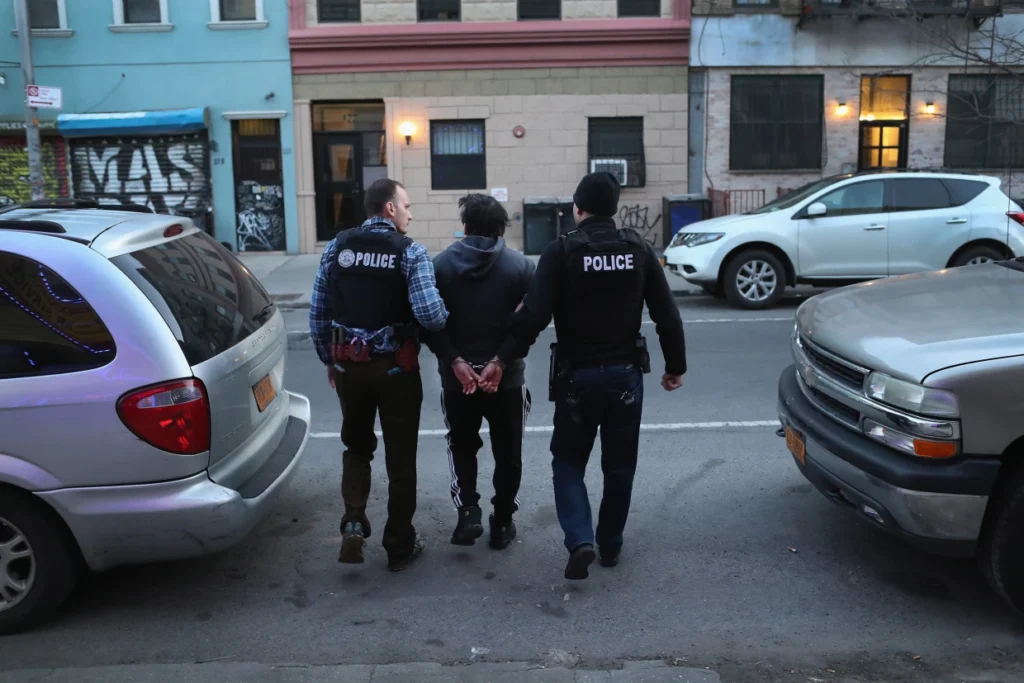A federal judge has ruled in favor of the U.S. Immigration and Customs Enforcement (ICE), allowing the agency to continue conducting arrests at courthouses in New York City. The decision has sparked controversy, with advocates warning it could undermine public trust in the judicial system and discourage community participation.
ICE officials defended the practice, stating that courthouse arrests are necessary to enforce federal immigration laws and ensure the apprehension of individuals with outstanding removal orders. They argued that these operations are conducted professionally, with minimal disruption to court proceedings.
Critics, however, argue that making arrests inside or near courthouses erodes public confidence in the legal system. They say witnesses, victims, and defendants may feel unsafe attending court, potentially reducing cooperation with law enforcement and access to justice.
The legal challenge against ICE’s courthouse arrests was brought by civil rights organizations and immigrant advocacy groups. Plaintiffs claimed that such operations violate the principle of safe access to the courts and disproportionately affect vulnerable populations, including asylum seekers and undocumented immigrants attending hearings.
During the hearing, the judge acknowledged concerns about public safety and civil liberties but concluded that ICE’s authority under federal law permits these actions. The ruling allows the agency to proceed while emphasizing that arrests should be conducted in a manner that minimizes disruption and ensures the safety of all courthouse visitors.
In response to the ruling, advocacy groups expressed disappointment and signaled intentions to continue monitoring the situation. They plan to document arrests and any reported incidents that may affect access to justice or community trust.
ICE has outlined protocols for courthouse arrests, including coordination with local law enforcement, identification procedures, and guidelines for limiting interactions with unrelated court attendees. Officials stress that officers are trained to handle situations professionally and respectfully.
The ruling comes amid broader debates over immigration enforcement in urban areas. Cities like New York have implemented “sanctuary” policies intended to protect undocumented immigrants from certain federal actions, but these policies do not prevent ICE from exercising its authority within federal legal frameworks.
Public defenders and court officials have expressed concerns that courthouse arrests may affect case outcomes. Some fear that individuals may miss hearings due to apprehension, leading to delays or additional legal complications. Judges and clerks are encouraged to remain aware of the potential impact on court participants.
Community leaders argue that courthouse arrests can create a climate of fear, particularly in neighborhoods with large immigrant populations. They stress the importance of balancing enforcement with ensuring that courts remain safe and accessible to everyone, regardless of immigration status.
Legal analysts note that the ruling reinforces ICE’s broad statutory authority but leaves open questions about the limits of discretion and the balance between federal enforcement and local protections. Future challenges may arise if arrests are perceived to interfere with the administration of justice or violate constitutional rights.
Meanwhile, ICE continues to emphasize the importance of removing individuals who are subject to deportation orders, citing public safety and compliance with immigration laws as primary goals. The agency maintains that courthouse arrests are conducted as a last resort and in alignment with federal priorities.
For New Yorkers, the ruling may affect how individuals approach court appearances, particularly those involved in immigration-related cases. Advocacy organizations are advising residents to seek legal guidance, remain informed of their rights, and report any concerns to ensure safety and access to justice.
The decision marks a significant moment in the ongoing discussion about immigration enforcement and civil liberties in the United States. While ICE is permitted to continue courthouse arrests, the debate over the balance between law enforcement and public access to the courts is likely to continue in both legal and public forums.
As courthouse operations proceed under these new parameters, authorities, legal experts, and community organizations will monitor outcomes closely, seeking to ensure that justice remains accessible while federal law enforcement maintains its mandated responsibilities.



